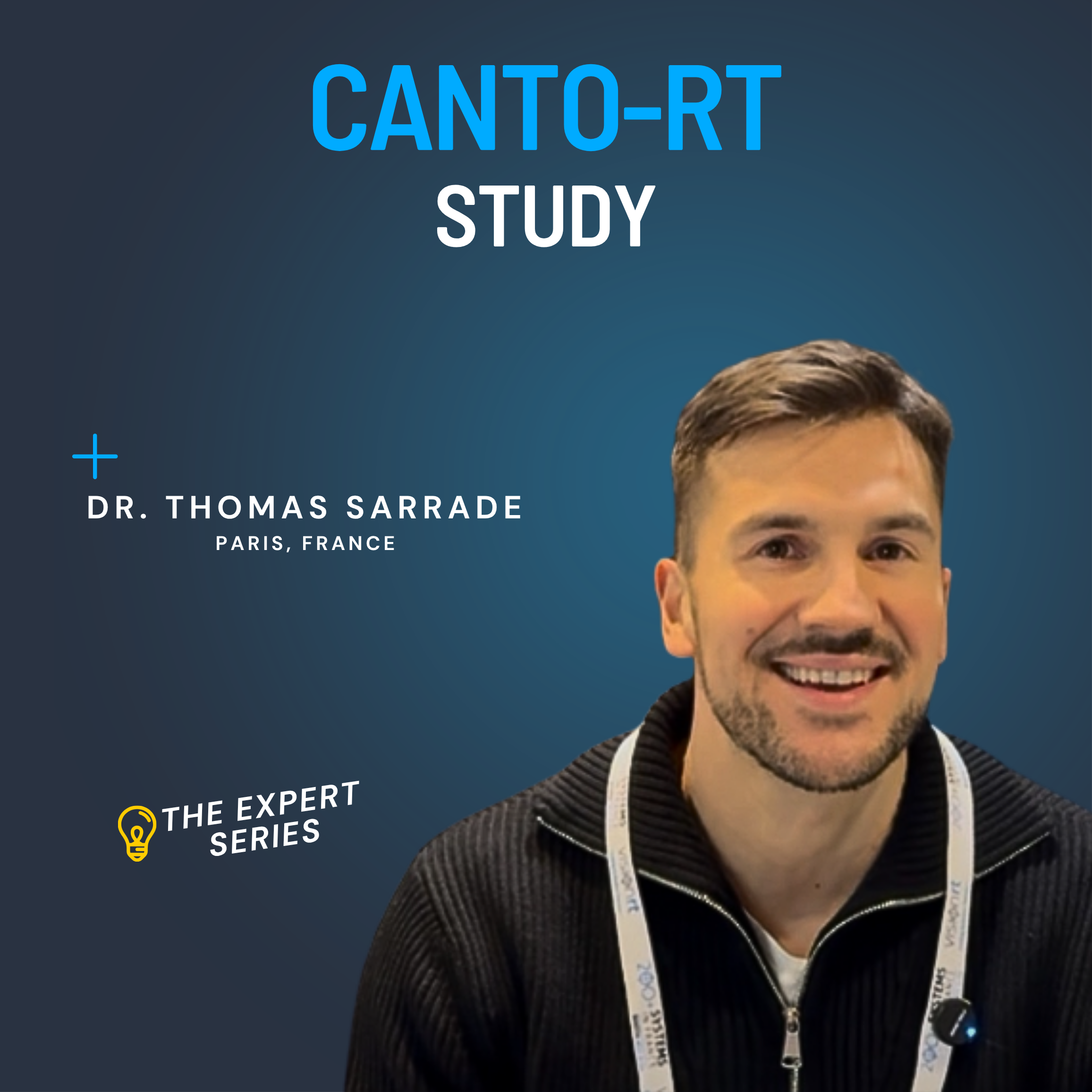
The CANTO-RT study is part of the broader CANTO (CANcer TOxicities) program, which aims to better understand the long-term side effects of breast cancer treatments. CANTO-RT specifically focuses on the toxicity of radiotherapy and its impact on patients.
CANTO-RT : Dr Thomas Sarrade
The primary objective of CANTO-RT is to identify and characterize the side effects of radiotherapy in patients with non-metastatic breast cancer. The study relies on clinical follow-up and imaging data analysis to better understand the risk factors associated with long-term complications.
- Methodology and Study Population
- Number of patients included: 3,875 patients who received radiotherapy for breast cancer.
- Follow-up duration: Median of 64 months (approximately 5 years).
- Treatments:
- 80.4% of patients underwent breast-conserving surgery.
- 68.5% received a targeted “boost” dose to the tumor.
Data collected included radiotherapy protocols, medical imaging, and patient outcomes after treatment.
Results and Clinical Implications
Analysis of the CANTO-RT data identified several factors influencing treatment toxicity, including dosimetric parameters and patient characteristics. These findings are crucial for tailoring radiotherapy strategies and minimizing long-term complications.
About Dr. Thomas Sarrade
Dr. Thomas Sarrade is a specialist in radiation oncology. He has been actively involved in the CANTO-RT study, collaborating with multiple research teams to analyze treatment side effects and improve patient care. His work focuses on personalizing oncology treatments and optimizing treatment tolerability.